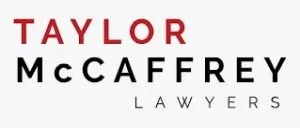- within Antitrust/Competition Law topic(s)
- with Senior Company Executives, HR and Inhouse Counsel
- in Africa
- with readers working within the Business & Consumer Services, Insurance and Healthcare industries
The pandemic has changed the workplace landscape not only in Canada, but across the world as employers addressed COVID-19 with measures such as social/physical distancing; remote working; air filtration systems; masking; hand cleaning and, of course, vaccination policies.
We all – whether employees or employers – have lived through this with a seemingly never-ending stream of new information and scientific data directing a standard of conduct initially through mandatory public health orders and subsequently through public health guidance.
The ever-changing presentation of COVID-19 and the corresponding public health authorities' responses to the pandemic gives rise to important questions:
- In the absence of public health requirements, are mandatory vaccination policies permitted?
- What constitutes a reasonable mandatory vaccination policy?
- How can we best design a reasonable mandatory vaccination policy?
In the absence of public health requirements, are mandatory vaccination policies permitted?
The short answer is "yes". Even without compulsory public health orders, employers are permitted to institute mandatory vaccination policies in the workplace. Put another way, the fact that the government no longer requires employers to institute compulsory COVID-19 vaccinations does not mean that employers cannot still do so.
It is important to note that many employers introduced mandatory vaccination policies against COVID-19 in light of their legal responsibility to identify potential workplace hazards and take every reasonable precaution to protect the health and safety of employees and customers in light of occupational health and safety legislation. This requirement still exists despite the disappearance of public health orders.
However, public health still has an important role to play: what is considered a reasonable precaution in the circumstances is directly related to the severity of the hazard and the advice of the relevant public health authority. As the risk and severity of COVID-19 increase or decrease, so does the justification for more strict or less strict measures such as mandatory vaccination policies in the workplace.
The question then becomes was the mandatory vaccination policy reasonable at the time it was introduced.
Several labour and employment law cases in 2022 provided us with guidance in assessing the validity of mandatory vaccination policies in the workplace and what constitutes a reasonable mandatory COVID-19 policy in all circumstances.
What constitutes a reasonable mandatory vaccination policy?
Extendicare Lynde Creek Retirement Residence and UFCW, Local 175 (Ontario)
The decision of Extendicare Lynde Creek Retirement Residence and UFCW, Local 175 issued on April 4, 2022, addressed the critical question of what constitutes a reasonable, mandatory vaccination policy in the workplace after the elimination of public health orders.
In this case, Arbitrator Stephen Raymond considered a union policy grievance which challenged the retirement home's mandatory COVID-19 vaccination policy. The policy required all newly hired and existing employees to be fully vaccinated including boosters recommended by Health Canada subject to accommodation requirements under the Human Rights Code. If employees were not fully vaccinated in compliance with the COVID-19 vaccination policy, they were to be placed on an unpaid leave of absence and "may be subject to additional corrective action up to and including termination of employment."
Arbitrator Raymond considered the reasonableness and lawfulness of the retirement home's mandatory COVID-19 policy in the context of the province of Ontario reducing or eliminating public health measures; especially those impacting retirement homes. The heart of Arbitrator Raymond's award is set out in paragraph 5:
"Having carefully considered the evidence, arguments and authorities, it is my view that the Policy has been and remains a reasonable workplace rule, consistent with the Collective Agreement, the Occupational Health and Safety Act, Retirement Homes Act, 2010 and the related regulations and requirements, and the relevant authorities. More specifically, this is my view even in the context of the Ontario Government and other public health authorities recently reducing or eliminating various vaccination and other COVID-19 related requirements for staff, contractors and visitors in the context of retirement homes, long-term care homes and, more generally, other facilities and venues."
Arbitrator Raymond went on to hold in paragraph 6 that the requirement to receive all booster vaccinations recommended by health authorities now, and in the future, "also has been and remains a reasonable workplace rule, consistent with the Collective Agreement, the Occupational Health and Safety Act, Retirement Homes Act, 2010 and the related regulations and requirements and the relevant authorities."
Deepk Parmar v. Tribe Management Inc. 2022 BCSC 1675 (British Columbia)
In the decision of Deepk Parmar and Tribe Management Inc. the British Columbia Supreme Court dismissed a claim of constructive dismissal brought by a long-service employee, Deepk Parmar who was put on unpaid leave after failing to comply with the employer's mandatory vaccination policy.
The Court's decision turned on the reasonableness of the mandatory vaccination policy based on what was known about COVID-19 at the time the policy was instituted and in light of the employer's obligation to protect the health and safety of its employees and customers. In this case, the employer's customers included thousands of residents of the buildings to which Tribe Management provided property management services.
The Court ruled that the employer had appropriately balanced the individual employee's concerns, such as the right to bodily integrity, against overarching obligation relating to public safety. The decision in paragraphs 151 and 152 provide as follows:
"On the evidence of both Ms. McMahon and Mr. Nakhla, [representatives of the employer] the decision to implement the MVP [mandatory vaccination policy] was not taken lightly and deciding to do so was personally very difficult for them. In turn, Ms. Parmar [the employee] also faced a difficult decision not to be vaccinated. That decision on her part led to a loss of her income and some of her benefits. The Leave did not, however, terminate her employment contract. It was clear that Tribe [the employer] wanted the employment relationship to continue as they had plans for Ms. Parmar's role in management. It was Ms. Parmar who resigned, taking the position that she had been constructively dismissed.
Ms. Parmar's refusal to comply with the MVP was a repudiation of her contract of employment. Tribe did not accept that repudiation. Instead, it acted reasonably in putting her on an unpaid leave. She was not constructively dismissed from her position; she resigned. Any losses that she suffered from being put on an unpaid leave work as a result of her personal choice not to follow Tribe's mandatory vaccination policy."
Notably, the Court found in paragraph 154 that enacting a policy such as this one that impacted on an employee's bodily integrity was "extraordinary". However, in the context of the "extraordinary health challenges posed by the global COVID-19 pandemic, such policies are reasonable" in the circumstances. The Court recognized that mandatory vaccination policies ultimately do not force the employee to be vaccinated, but rather require the employee to decide between getting vaccinated and continuing their employment or remaining unvaccinated and losing employment income.
Fraser Health Authority v. British Columbia General Employees' Union, 2022 CanLII 25560 (BCLA)
The arbitration decision of Fraser Health Authority and British Columbia General Employees' Union represented an individual grievance which challenged the discharge of a health authority employee who refused to be vaccinated against COVID-19.
In this case, British Columbia's Provincial Health Officer issued an order requiring all health authority employees to be vaccinated against COVID-19 in order to be eligible for work.
Accordingly, the employer, Fraser Health Authority sent a letter to its employees which advised them that if they did not receive the required vaccination by certain dates, they would be placed on a three-week unpaid leave of absence and, if they did not receive the vaccination in that period, their employment would be terminated.
The griever was a substance abuse counsellor who made it very clear that she would not obtain vaccination taking the position that the vaccination requirement was unlawful. She also alleged that the Provincial Health Officer's order violated the Charter of Rights and Freedoms and her religious beliefs. The grievor did not qualify for a medical exemption and the union confirmed that there was no religious discrimination component to the grievance. Given her continued refusal to be vaccinated, the grievor was put on a three-week unpaid leave of absence and, subsequently, discharged for cause.
In paragraph 21 of the award Arbitrator Koml Kandola framed the ultimate question to be decided this way: did the employer have "just and reasonable cause to terminate the Grievor's employment, in the context of the PHO [Provincial Health Officer] order imposing mandatory vaccination requirements that apply to health sector employees across the province" and where "the Grievor is ineligible to work under that order?"
Arbitrator Kandola concluded that it did constitute just and reasonable cause to terminate the grievor's employment and dismissed the grievance. In doing so the arbitrator rejected the union's arguments that the employer's interests in providing a safe workplace could have been achieved by other means, including by placing the grievor on an unpaid leave of absence or layoff and, in any event, the employer's approach of automatic termination did not allow for consideration of mitigating factors or individual circumstances. The arbitrator held that the collective agreement's layoff provisions related to loss of work or reduction of the workforce did not apply. Furthermore, the Arbitrator Kandola found the employer's evidence of serious operational impacts when leaving unvaccinated employees on undefined unpaid leaves of absence was compelling. The employer gave employees the opportunity to raise individual circumstances which would be considered if they were relevant in the context of the Provincial Health Officer's order.
How can we best design a reasonable vaccination policy?
Admittedly, these decisions are largely dependent on their facts (the specific time, place and circumstances etc.). However, they do provide some helpful instruction on how courts, arbitrators and other decision makers may address the validity of mandatory vaccination policies in the workplace in the absence of mandatory public health orders.
What should an employer consider in designing a reasonable mandatory vaccination policy?
- What are the current public health requirements or recommendations in the relevant province (for a provincially regulated employer) or Canada (for a federally regulated employer)? It is readily evident that employers must meet minimum requirements provided by public health authorities; however, an employer should also consider public health recommendations to impose additional safety and health precautions, especially in certain industries or sectors of work.
- Does the workforce work closely with "vulnerable populations" which would support stricter measures than provided by the relevant public health authority? For example, Extendicare Lynde Creek Retirement Residence and UFCW, Local 175 considered a retirement home and long-term care facility with a vulnerable population.
- What proportion of the workforce is vaccinated? A workforce with low vaccination rates (including boosters) may justify stricter measures by the employer in a COVID-19 vaccination policy.
- Do employees work in close proximity with one another and/or is it a public-facing workplace all of which would justify stricter safety measures? For example, this would be an important consideration in factories or congregate living facilities.
- Can the employer implement effective and less intrusive precautions other than a mandatory vaccination policy to ensure the safety of its workforce and the public? For instance, is masking, remote work, social or physical distancing, regular testing for COVID-19 and/or hand cleaning a reasonable option or option for the workplace?
Conclusion
What all employers and employees have learned over the last three years is that COVID-19 and its variants are literally ever-evolving and changing. Accordingly, employers would be well served by implementing nimble and dynamic COVID-19 vaccination policies that are responsive to the severity of the risk posed by COVID-19 and its variants at different points in time.
The content of this article is intended to provide a general guide to the subject matter. Specialist advice should be sought about your specific circumstances.


